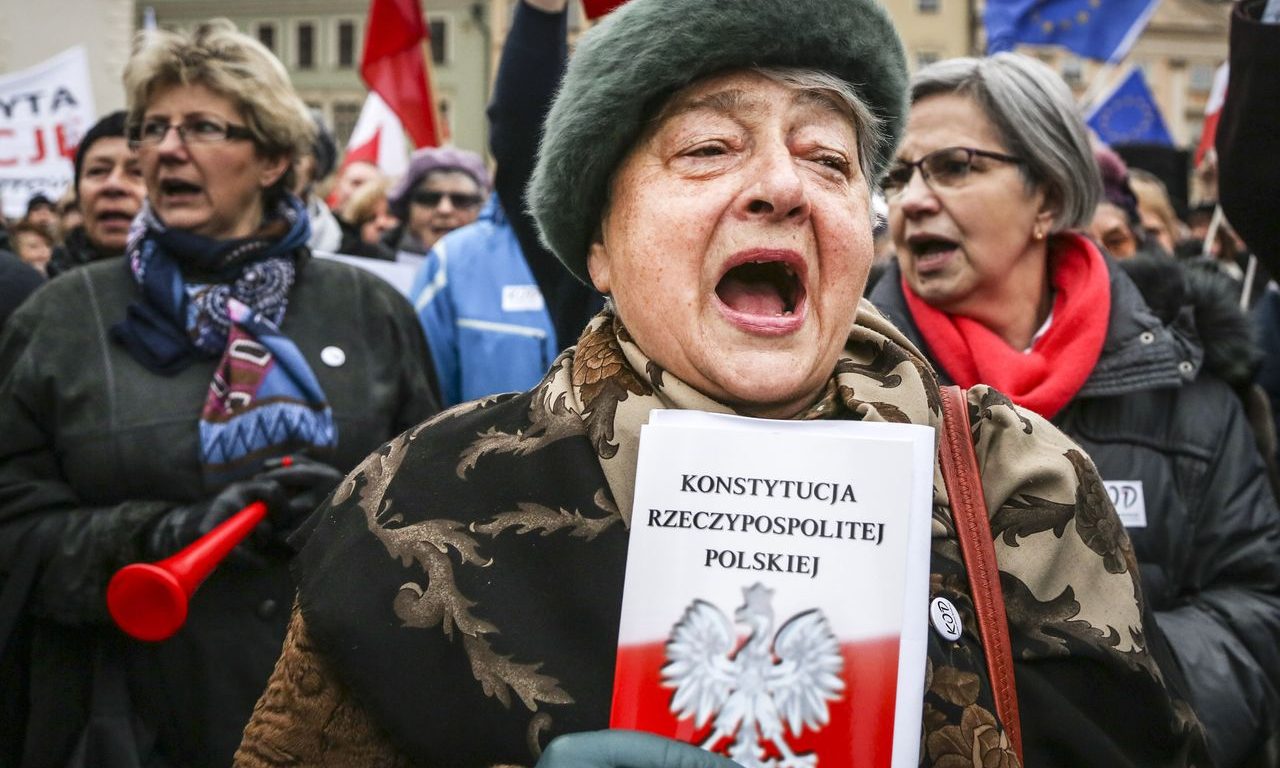After winning in a landslide election last November, the eerily named Law and Justice Party now dominates Polish parliament, making the country the latest in Europe to experience a nationalist resurgence. Law and Justices’s success represents a surprising turn-of-face for Polish politics. After years of increased engagement with the European Union, the unprecedented success of Law and Justice demonstrates an emergence of Euroskepticism. But what are they being skeptical of? For many of the EU’s former communist or authoritarian states, the EU offers accelerated development after years of stagnation. One of the ways the EU hopes to promote economic acceleration is through freer trade, a policy Law and Justice’s platform explicitly seeks to hinder. Among other changes to combat free trade, the Party has enacted a retail chain tax. But hindering free trade is not the only way the tax serves to oppose the European Union. The retail chain tax disproportionately affects large, multi-national chains based in Western Europe, a proxy-attack on the EU’s wealthy and powerful Western European members.
The tax can be reasonably considered to represent the will of the Polish people. It was part of Law and Justice’s platform, and the Polish people voted Law and Justice into office. The tax was not a side effect of electing Law and Justice; rather, it was a goal. But the tax may not go into effect just yet. To the delight of business leaders, the retail chain tax is going to be challenged in court. A fair judgment, however, is far from likely. Law and Justice has refused to allow five new judges, chosen by the previous parliament, to sit on the Constitutional Tribunal’s bench. Their decision is partly justified. Two of the five judges were indeed improperly chosen. But despite a complete lack of wrongdoing on behalf of the three other judges, Law and Justice has blocked them from sitting on the Constitutional Tribunal. Furthermore, Law and Justice has amended the Constitution, disallowing the judges from exercising full judicial review should they ever take their seats.
Unsurprisingly, the Constitutional Tribunal ruled that Law and Justice’s amendment was neither lawful nor just. The government, however, refused to accept the Constitutional Tribunal’s ruling, prompting the European Commission to provide a new and diminished assessment of Poland’s rule of law. Though the government has refused to implement the ruling, its refusal is not, in and of itself, unconstitutional. But two aspects of the government’s actions do violate the constitution. First, when the government declares that it will not accept a ruling by the Constitutional Tribunal, the constitution mandates that the government publish the opinion of the court in the national newspaper, Monitor Polski. The government has refused to publish the opinion. Second, when the tribunal determines that a law is not in conformity with the Constitution, the proceedings regarding that law reopen. Since Law and Justice’s parliament refuses to reexamine its amendments to the Constitution after they were ruled unlawful, it is again not responding to constitutional mandates. Thus, Law and Justice has violated the Constitution on two counts.
Poland’s Chief Justice has called the current situation a crossroads in Poland, that the country is “deciding whether to stay in the West or return to the East.” But if Poland is going through an identity crisis, it is a very ill-timed one. Putin’s desire for Russian resurgence and claims to Cold War territory do not bode well, nor does the refusal of Polish nationalists in government to cooperate with the EU. In becoming increasingly isolationist, spurning the EU’s refugee mandate and its economic zone, Poland is marking itself for downgraded ally-ship among the nations that compose a counterweight to the tyranny of Russia.
One can, however, understand the recent increase in Polish nationalism as a rejection of any sort of coalition that deprives the nation of sovereignty. Under that explanation, the new Poland would be no more likely to deepen ties with Russia. To overwhelmingly Catholic Poland, allyship with Eastern Orthodox Russia would be antithetical to its identity as a Catholic nation. Poland’s path from Communism was predicated on the Solidarity labor movement, which united intellectuals, Catholics, and organized labor. Because Poland’s independence narrative is based on Catholicism and freedom from Moscow’s aggression, it is unlikely that Polish nationalists see Russia as a viable partner. However, because the EU enforces secularism, a nation whose freedom is predicated upon religious Solidarity, would be naturally wary. Party leaders have even been quoted saying that they are weary of Brussels’ involvement.
Poland’s opposition to the EU is also explained by its experiences with Soviet Communism. As one of the USSR’s former satellite states, Poland would have natural cause to fear an organization like the EU, which rules from far-away Brussels and mandates giving up some sovereignty. Albeit without purges or secret police, the EU functions through a structure that blurs the lines between national and supranational identity. Historical memories of the fight against communism thus foment hostility to the EU’s liberal secularism.

